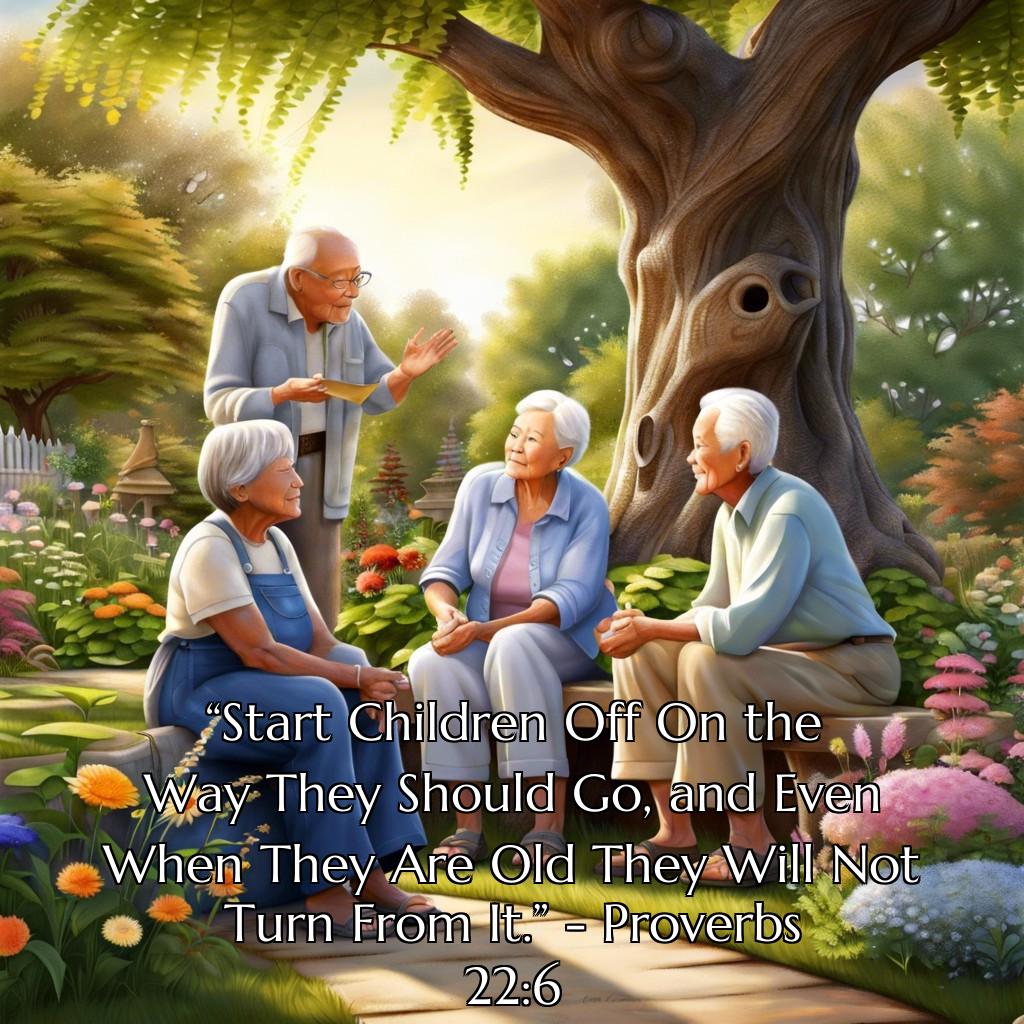This article presents a list of ten Bible verses about love, explaining their meanings to give you a clearer understanding of what the Bible says on this profound subject.
Love is a profound and central theme throughout the Bible, shaping our relationships and understanding of God’s nature. Whether you’re seeking guidance on how to love others or yearning to understand divine love, these verses illuminate the path. Discover their meanings, and let them inspire and transform your life. Dive in and savor the wisdom each verse offers.
“1 Corinthians 13:4-5: Love Is Patient, Love Is Kind. It Does Not Envy, It Does Not Boast, It Is Not Proud. It Does Not Dishonor Others, It Is Not Self-seeking, It Is Not Easily Angered, It Keeps No Record of Wrongs.”

This verse beautifully lays out the attributes of love in a practical, everyday sense. Love is patient, implying that true affection waits and endures. It is kind, showing that love expresses itself through acts of kindness.
Love does not envy, meaning it is not jealous of others’ successes. It does not boast and is not proud, indicating humility and selflessness.
True love respects others; it does not dishonor them. It isn’t self-seeking, demonstrating a focus on the well-being of others. Love isn’t easily angered, showcasing its calm and gentle nature.
Love keeps no record of wrongs, highlighting its forgiving and forgetful nature. These behaviors together form a powerful image of what real love looks like.
“1 John 4:7: Dear Friends, Let Us Love One Another, for Love Comes From God. Everyone Who Loves Has Been Born of God and Knows God.”

This verse emphasizes the profound connection between love and our relationship with God. It beautifully illustrates how love is not merely an emotion, but an essential aspect of our identity as followers of God.
Firstly, love is presented as originating from God Himself. This implies that true, selfless love cannot be fully understood or manifested without recognizing its divine source. Loving others becomes a natural expression of recognizing and accepting God’s love for us.
Secondly, the verse underscores that those who love demonstrate their spiritual rebirth. This new birth is characterized by a transformation that makes love an intrinsic part of who we are. When we love, we bear the mark of being born of God.
Lastly, knowing God is tied inherently to loving others. This knowledge isn’t just intellectual, but deeply relational. Truly knowing God changes how we interact with those around us, prioritizing love as the fundamental way to live out our faith.
These points collectively highlight the inseparable link between divine love, our spiritual identity, and our actions towards others.
“Romans 12:10: Be Devoted to One Another in Love. Honor One Another Above Yourselves.”

This verse emphasizes mutual respect and dedication in our relationships. Love in this context is about prioritizing others, putting their needs and well-being above our own.
- Be devoted to each other: Show deep, unwavering commitment in your relationships.
- Honor above yourself: Value others highly, recognizing their worth and treating them with dignity.
- Love requires humility: A genuine connection flourishes when mutual respect outweighs self-interest.
True love is both selfless and dedicated, fostering an environment where everyone feels valued and respected. This powerful, sacrificial love mirrors the unconditional love God shows us.
“John 15:12: My Command Is This: Love Each Other As I Have Loved You.”

This directive from Jesus highlights the ultimate example of love. It’s not a vague suggestion; it’s a clear command.
Jesus’ teachings emphasize selflessness. He sacrificed for us, showing love through actions and service. We are called to mirror that in our lives.
Emotional support is vital. Jesus was always there for his disciples, listening and comforting them. We should aim to be emotionally available for those around us.
Forgiveness plays a huge role. Jesus forgave even those who wronged him. We are asked to let go of grudges and embrace forgiveness.
This verse also pushes us toward unconditional love. Jesus loved without conditions, welcoming all. Our task is to love others, irrespective of their flaws or past actions.
By embodying these principles, we align ourselves more closely with the love Jesus taught.
“Ephesians 4:2: Be Completely Humble and Gentle; Be Patient, Bearing With One Another in Love.”

Humility, gentleness, and patience form the backbone of loving relationships. This verse emphasizes humility, steering us away from arrogance and pride. Gentleness encourages a kind and tender approach, essential for maintaining harmony.
Patience is critical. In a fast-paced world, waiting for others can often be challenging. Bearing with one another underscores the need for tolerance and endurance. Love is not just about grand gestures; it’s also about daily acts of kindness and understanding, recognizing that everyone has flaws and weaknesses. Through these practices, we create an environment where love can thrive.
“Colossians 3:14: And Over All These Virtues Put On Love, Which Binds Them All Together in Perfect Unity.”

This verse emphasizes the supreme importance of love among Christian virtues. Love isn’t just another virtue; it’s the glue that holds everything together.
It teaches us that love is the essential ingredient that completes and perfects our character. While other virtues are important, love is what makes them effective and harmonious.
Think of love as the binding agent that cements compassion, kindness, humility, gentleness, and patience into a cohesive whole. Without love, these virtues can fall apart or become misaligned.
In our daily lives, putting on love means consciously choosing to act lovingly even when it’s hard. It means forgiving, being patient, and putting others’ needs above our own. This unity brought by love fosters peace and community.
“Proverbs 10:12: Hatred Stirs Up Conflict, but Love Covers Over All Wrongs.”

Hatred breeds discord and strife, tearing communities and relationships apart. It thrives on negativity and conflict, escalating even minor disagreements into major disputes. In contrast, love acts as a soothing balm, covering and forgiving wrongs.
Love focuses on healing rather than hurting. It seeks reconciliation and understanding, choosing forgiveness over holding grudges. Love is proactive in maintaining peace, seeing beyond faults to support one another.
Hatred magnifies flaws and mistakes, but love minimizes them by fostering patience and compassion. It’s about creating an environment where grace and kindness prevail, allowing for growth and harmony. Love’s power to cover all wrongs emphasizes the transformative impact it can have on individuals and communities.
“1 Peter 4:8: Above All, Love Each Other Deeply, Because Love Covers Over a Multitude of Sins.”

This verse emphasizes the power of deep, heartfelt love in fostering forgiveness and grace. It captures the essence of Christian teachings on love.
- Love deeply: This isn’t a superficial affection but a profound and sincere connection.
- Covers a multitude of sins: Real love encourages forgiveness and can heal relationships by overlooking faults.
- Priority of love: Prioritizing love can lead to stronger, more unified communities.
- Encourages patience: Loving deeply helps cultivate patience and understanding towards others’ shortcomings.
In daily life, applying this means choosing to react with kindness and understanding, even when hurt. This approach mirrors how God shows love and forgiveness.
“1 Corinthians 13:13: And Now These Three Remain: Faith, Hope and Love. But the Greatest of These Is Love.”

Faith, hope, and love are foundational Christian virtues. This verse emphasizes the supremacy of love. Here’s why:
Faith connects us to God, grounding our beliefs. It assures us of God’s promises and fuels our spiritual journey.
Hope gives us vision, keeping our eyes on eternal life. It’s the anchor of our souls, enabling us to endure hardships.
Yet, love is lauded as the greatest. Love embodies God’s nature. It’s the essence of Jesus’ teachings and actions.
Love unites the community, fosters empathy, and heals deep wounds. It moves beyond personal faith and hope, reaching out to others, creating a tapestry of relationships built on godly compassion.
“John 3:16: For God So Loved the World That He Gave His One and Only Son, That Whoever Believes in Him Shall Not Perish but Have Eternal Life.”

This verse is often considered the cornerstone of Christian faith, summarizing the essence of God’s love for humanity.
It highlights God’s immense love, expressed through the sacrifice of His Son. This act of giving was not out of obligation, but out of sheer love.
Belief in Jesus provides the promise of eternal life. This is an inclusive message, emphasizing that anyone who believes is offered salvation.
The verse underscores the unselfish nature of true love, exemplified by God’s willingness to offer His beloved Son for the greater good.
Reflecting on this verse, one can see love as sacrificial, unconditional, and boundless. It encourages believers to trust in God’s plan and love for them.





